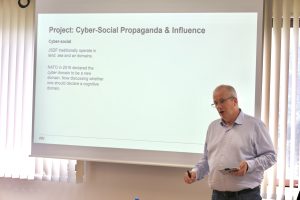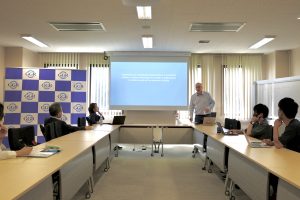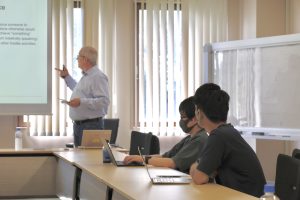On July 27, 2022, the Institute for Global Governance Research (GGR) invited Dr. Arild Bergh, a visiting scholar from Norwegian Defence Research Establishment (FFI), as a guest speaker for the 6th GGR Brown Bag Lunch Seminar.
To begin with, Dr. Bergh introduced himself with his personal and professional background: working as a computer programmer for 20 years and later becoming a PhD in sociology. His work span includes both military and civilian aspects of defense.
Dr. Bergh explained “cyber-social propaganda influence” by separating it into three parts: cyber-social (including the cognitive domain), propaganda (the tool), and influence (the goal). He indicated that influence efforts can be harmful to the country, when conducted with deliberate and coordinated dissemination and twisting perceptions, having negative effects.
Although disinformation is not a new phenomenon in techno-historical development, Dr. Bergh pointed out that social media makes more things possible with a lower cost: a greater range of influence and improved accuracy. People can become more distrustful of authorities and supportive of certain narratives, not only by encountering fake news and influencers’ content, but by the encounter with algorithmic narratives.
During the Q&A session, with around 10 Hitotsubashi professors and students participating, questions were raised about how narratives work, the linkage between separate events in different countries, and how to overcome disinformation/misinformation in regional contexts.
Dr. Bergh is currently conducting a comparative study, focusing on Okinawa and Finnmark, analyzing state narratives and distribution methods and channels.
【Event Report prepared by】
JEONG Minhee (PhD student, Graduate School of Law, Hitotsubashi University)



